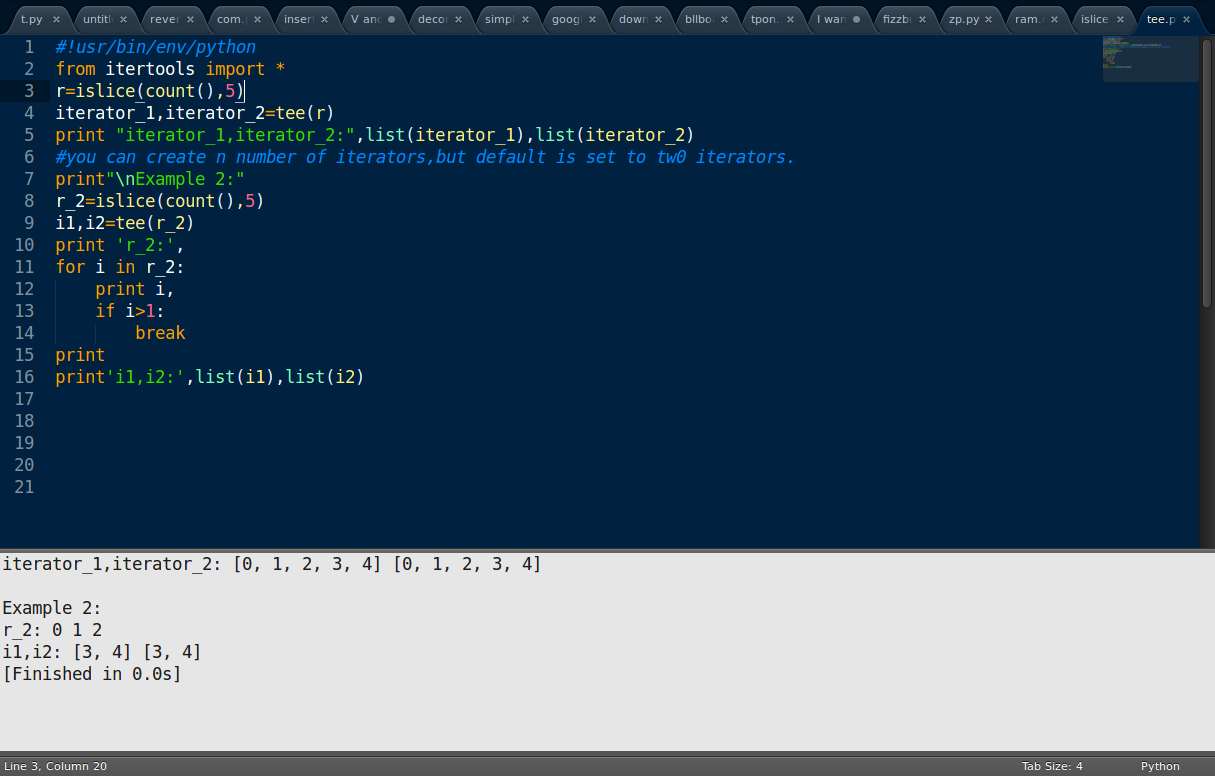

So if you want to write 2 variable as a CSV row you can put them in a tuple or list: writer.writerows((variable1,2))Īlso from itertools you can import zip_longest as a more flexible function which you can use it on iterators with different size. Python 3 does not need this any more as the built-in zip is already an iterator. In this case since zip's arguments must support iteration you can not use 2 as its argument. Print(timeit('list(zip(range(100), range(100)))', number=500000)) Which went smoothly, but I when trying to determine the composition I ran into an import problem: python scripts/genkmer.py Traceback (most recent call last): File 'scripts/genkmer. The iteration stops when the shortest input iterable is exhausted. When you consume the returned iterator with list(), you get a list of tuples, just as if you were using zip() in Python 3. The module standardizes a core set of fast, memory efficient tools that are useful by themselves or in combination. Each has been recast in a form suitable for Python. This module implements a number of iterator building blocks inspired by constructs from APL, Haskell, and SML. It goes through each element of each passed iterable, then returns a single iterator with the contents of all passed iterators. In this example, you call itertools.izip() to create an iterator. Functions creating iterators for efficient looping. chain() The chain() function takes several iterators as arguments.

Print(timeit('zip(xrange(100), xrange(100))', number=500000)) Itertools is a Python module of functions that return generators, which are objects that only function when iterated over. Here is a benchmark between zip in Python 2 and 3 and izip in Python 2: In this example, you call itertools.izip() to create an iterator.

The zip implementation is almost completely copy-pasted from the old izip, just with a few names changed and pickle support added.
#From itertools import izip python 3 full#
You will understand more when you see the full code together for. print ( (itertools.ziplongest (seq1, seq2,fillvalue 'empty' ))) Here empty will be an alternative sequence value after the second sequence length gets over. In Python 3 the built-in zip does the same job as itertools.izip in 2.X(returns an iterator instead of a list). Step3: Above all and Most importantly, Call the Python ziplongest () function. try: from futurebuiltins import zip except ImportError: not 2.6+ or is 3.x try: from itertools import izip as zip < 2.5 or 3.x except ImportError: pass The advantage of using futurebuiltin is that it's in effect a bit more 'explicit' as to intended behaviour of the module, supported by the language syntax, and possibly recognised by tools.


 0 kommentar(er)
0 kommentar(er)
